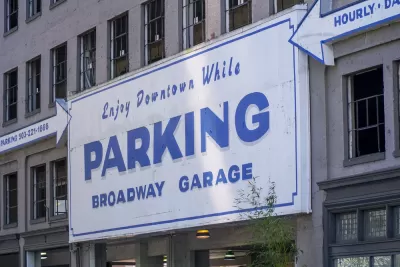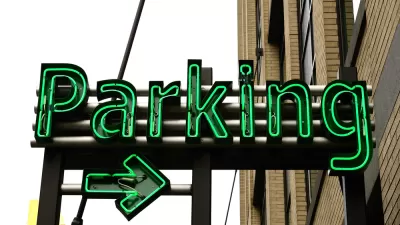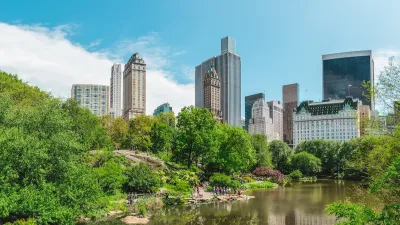Rather than trying to make parking lots with expensive surfaces that cost to maintain, Portland should eliminate its parking minimums, according to this article.

Surface parking lots in urban areas cause a number of different problems. They take up space that could be used for housing, they make it cheaper to drive, which effects a city’s air quality, they add to the urban heat shielding of the city, and, because they don't absorb rain, they put pressure on water systems. Portland officials have proposed legislation to mandate developers solve two of these problems in future developments by forcing developers to use permeable surfaces. This would mean these spaces wouldn't reflect as much heat or push as much water in to sewers, but they wouldn't come cheap.
"If Portland planners are honestly concerned about urban heat and the environment then they should propose eliminating minimum parking requirements," Tony Jordan argues in PDX Shoupistas. This strategy, recently employed by Mexico City, would eliminate some of these lots altogether, and instead of making development more expensive, which would in turn drive up the cost of housing, it would make some developments less expensive. Accomplishing two goals in a city that is becoming more expensive.
"Planners and officials might be worried that neighbors will complain about developments with fewer parking stalls, but maybe it’s time to show city officials and planners that people concerned about housing affordability, climate change, and traffic safety can make just as much, or maybe more, noise," Jordan writes.
FULL STORY: Portland Plans To Make Parking More “Green” And More Expensive

Alabama: Trump Terminates Settlements for Black Communities Harmed By Raw Sewage
Trump deemed the landmark civil rights agreement “illegal DEI and environmental justice policy.”

Planetizen Federal Action Tracker
A weekly monitor of how Trump’s orders and actions are impacting planners and planning in America.

The 120 Year Old Tiny Home Villages That Sheltered San Francisco’s Earthquake Refugees
More than a century ago, San Francisco mobilized to house thousands of residents displaced by the 1906 earthquake. Could their strategy offer a model for the present?

In Both Crashes and Crime, Public Transportation is Far Safer than Driving
Contrary to popular assumptions, public transportation has far lower crash and crime rates than automobile travel. For safer communities, improve and encourage transit travel.

Report: Zoning Reforms Should Complement Nashville’s Ambitious Transit Plan
Without reform, restrictive zoning codes will limit the impact of the city’s planned transit expansion and could exclude some of the residents who depend on transit the most.

Judge Orders Release of Frozen IRA, IIJA Funding
The decision is a victory for environmental groups who charged that freezing funds for critical infrastructure and disaster response programs caused “real and irreparable harm” to communities.
Urban Design for Planners 1: Software Tools
This six-course series explores essential urban design concepts using open source software and equips planners with the tools they need to participate fully in the urban design process.
Planning for Universal Design
Learn the tools for implementing Universal Design in planning regulations.
Clanton & Associates, Inc.
Jessamine County Fiscal Court
Institute for Housing and Urban Development Studies (IHS)
City of Grandview
Harvard GSD Executive Education
Toledo-Lucas County Plan Commissions
Salt Lake City
NYU Wagner Graduate School of Public Service





























